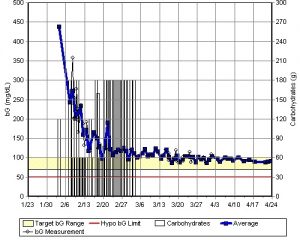How do you get diabetes?

For many people they think that how do you get diabetes is like a cold or other minor illness that can be transmitted through air like a common cold or the flu. How do you get diabetes is hereditary or more serious than that.
There are several factors that can give a person a higher tendency with developing type I diabetes: hereditary factors, immune factors, and “triggering” factors such as stress or viruses. If both parents have type I diabetes the risk for developing it is less than 50%.
How do you get diabetes such as type II diabetes? There is a very strong heredity factor in developing type II diabetes. If one twin has type II diabetes the chance that the other twin will also develop it is 95%. Certain ethnic groups, such as African Americans, and Native Americans have a stronger tendency in developing type II diabetes possibly because of their diet or environmental factors. Obesity is a very large factor in getting type II diabetes. When a person is obese, the body has a harder time using the insulin therefore making an obese person more susceptible to getting type II diabetes.
How do you get diabetes such as gestational diabetes is when a young infant obtains diabetes while the mother is pregnant with he or she? When a pregnant lady develops diabetes during their pregnancy chances are more likely, 25-50% more likely that she will develop type II diabetes after her pregnancy. Diabetes is not something to mess with and if you think that you are getting diabetes or have any warning signs and symptoms of diabetes then you need to consult with your doctor or physician immediately so that you can take the precautions before it gets too out of control and is then hard to manage and maintain.

